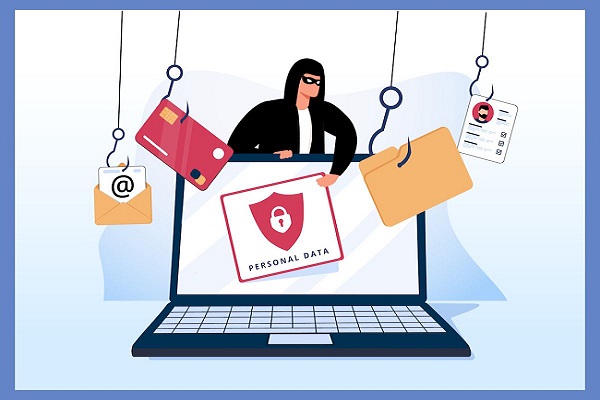It’s hard to imagine a world without the Internet. After all, it keeps us connected with friends and family, and can help us find solutions to many of the problems we encounter in our day to day lives. However, the web also presents a breeding ground for nefarious activities, with online scams posing a significant threat to individuals' financial security and personal information. Education can be seen as a powerful tool for fighting these types of scams, giving people the information and awareness which can ensure safety in the digital world.
What are Online Scams?
Online scams generally cover all sorts of false and deceiving activities aiming to deceive unsuspecting internet users. The scams come in different forms such as phishing emails, illegitimate websites, social engineering activities and identity theft. Cyber criminals use sophisticated techniques to charm victims and often target their weaknesses such as greed and fear for exploitation.
One of the most common cybercrimes is phishing, which in itself takes many forms. In phishing, criminals pretend to be legitimate entities like banks, government agencies, or companies. Using this fake authoritative identity, they force people to provide confidential data such as passwords, credit card numbers, or social security numbers. These fraudulent communication strategies frequently include alarming messages or tempting offers, and order an immediate response. Therefore, unless advanced scam detection tools like the free scam detector from Bitdefender is used, the victims unknowingly disclose their confidential data.
Another popular scam is a phony website, which belongs to a fraudulent platform and is made to trick visitors into sharing their private or financial information. The scam websites often feature convincing logos, layout, and contents that give the appearance of their genuine counterparts. Perpetrators may create intrigue through the exploitation of user ignorance. Their victims are therefore users who log in with their credentials or payment details without realizing that cybercriminals have laid traps to capture their personal data.
Social engineering is another tactic, which the scammers use to take the advantage of someone to divulge the information or take actions that are against their better judgment. By leveraging psychological techniques, such as authority, urgency, or familiarity, perpetrators exploit human trust and emotions to achieve their malicious objectives. Generally, social network platforms become bases for such manipulation where swindlers leverage personal information obtained through the user profiles to tailor their approach and to create rapport with potential victims.
Avoiding Online Scams Through Education
Preventing online scams requires a concerted effort in education and awareness. This involves understanding the range of scams prevalent in the digital realm, from phishing emails to identity theft schemes. Through the promotion of digital literacy and continuous awareness, individuals can make a stand against online threats and uphold their safety.
Awareness and Recognition
Think of a scenario in which you get an email from your bank requesting that you immediately update your account details via a link in a message. Instead of directly obeying the email in this situation, stop and look out for any red flags like bad spellings, non-personalized greetings, or fishy attachments. Keep in mind: reliable organizations like banks would never ask for sensitive personal information such as PIN through emails, especially under high pressure or with a time limit.
Cybersecurity Training
Do you ever ask yourself things like “how secure is my password?” Bitdefender’s dedicated cybersecurity blog can help you with practical tips and real-life scenarios to illustrate how to make your online activities more secure. Take time to understand the basic principles in cybersecurity and how you can keep yourself from becoming a victim of online scams and cyber threats. You can also consider going for online courses or workshops which educate you about basic cybersecurity techniques.
Digital Hygiene Practices
Take proactive steps like using distinct and complex passwords for each account and enabling two-factor authentication whenever possible. To mention the least, you also need to periodically check your privacy settings on social media platforms to control who could potentially view your personal information as well as limit the risks of identity theft or social engineer tactics. Even such small measures can lead to better digital hygiene and reduce the risk of being scammed online.
Reporting and Response
Let's assume you find a questionable website or get a phishing message trying to get you to divulge private data. Instead of sending it to your trash box, notify the authority, classify it as an anti-phishing activity through an organization like the Anti-Phishing Working Group and or your local cybersecurity response team. When you report frauds early enough, you protect yourself while at the same time you add to the collaborative efforts aimed at fighting cybercrime and the internet will be a safer place for everyone throughout the world.
By the means of proactive education, cybersecurity training, and advocacy for the best practices, we can create an environment where people are informed and know how to surf the internet with confidence and not fear, enabling them to remain vigilant about online security borders. Remember, the more you educate yourself on the different threats in the online realm, the safer you and your data will be.

No comments:
Post a Comment